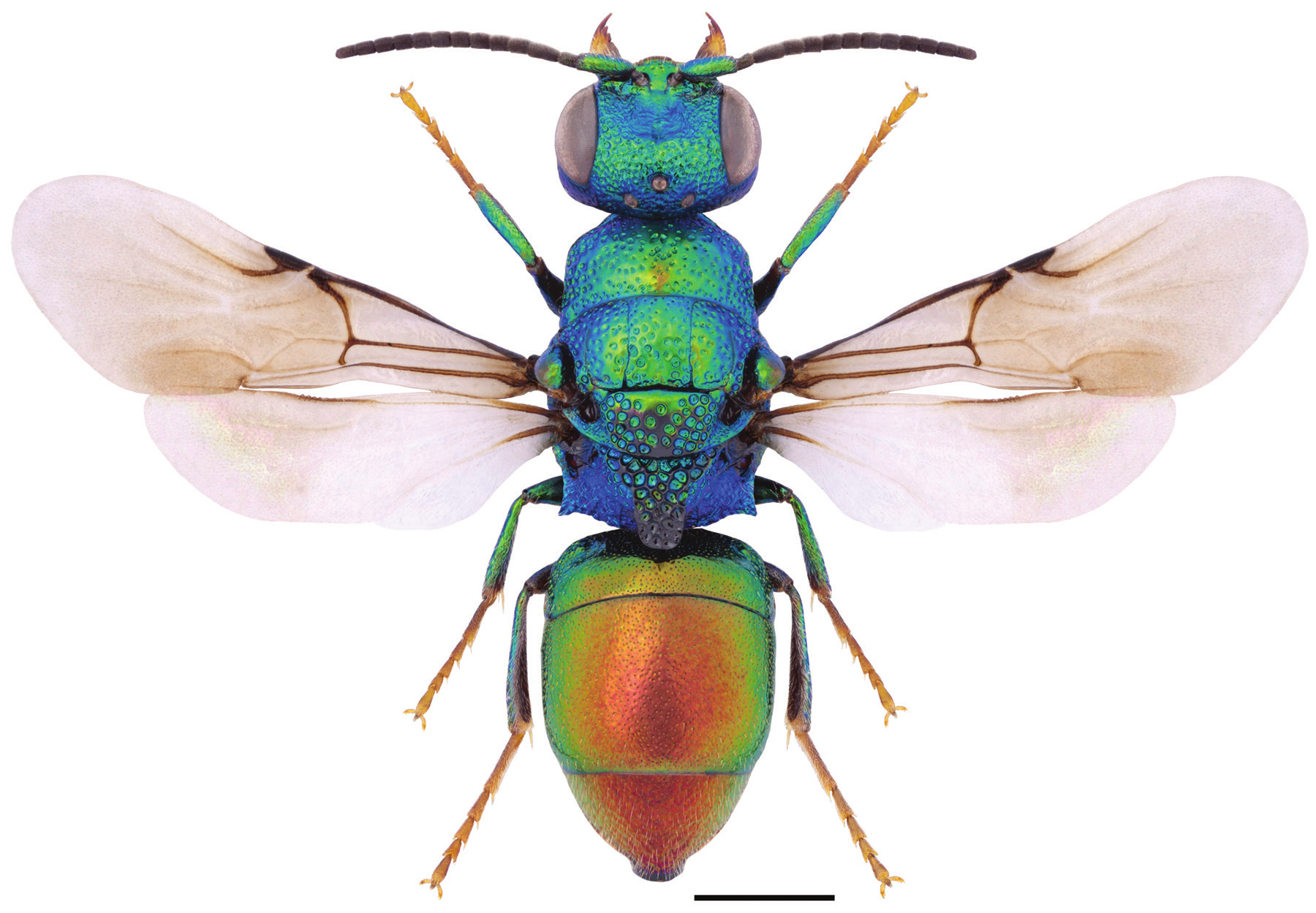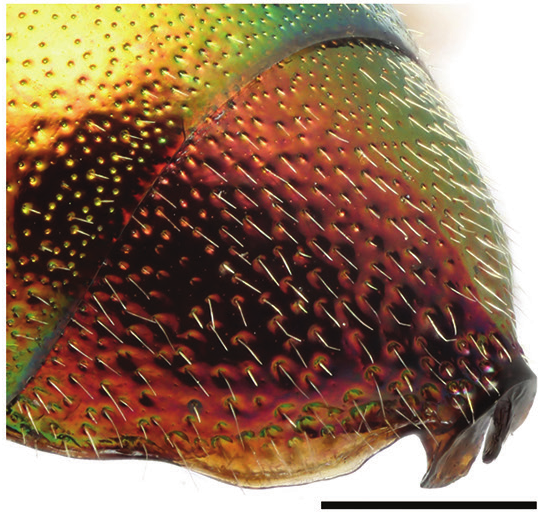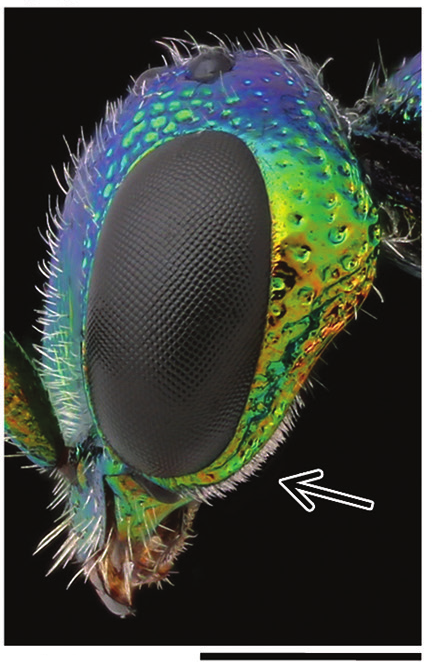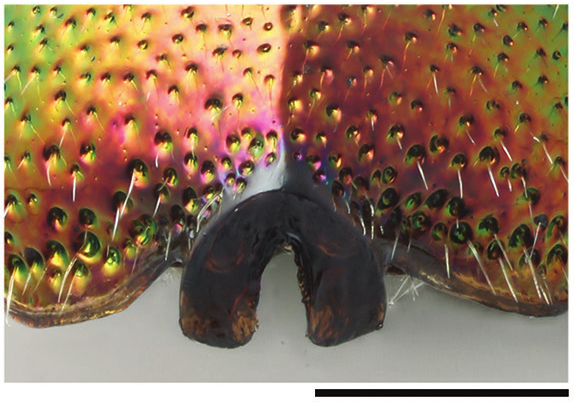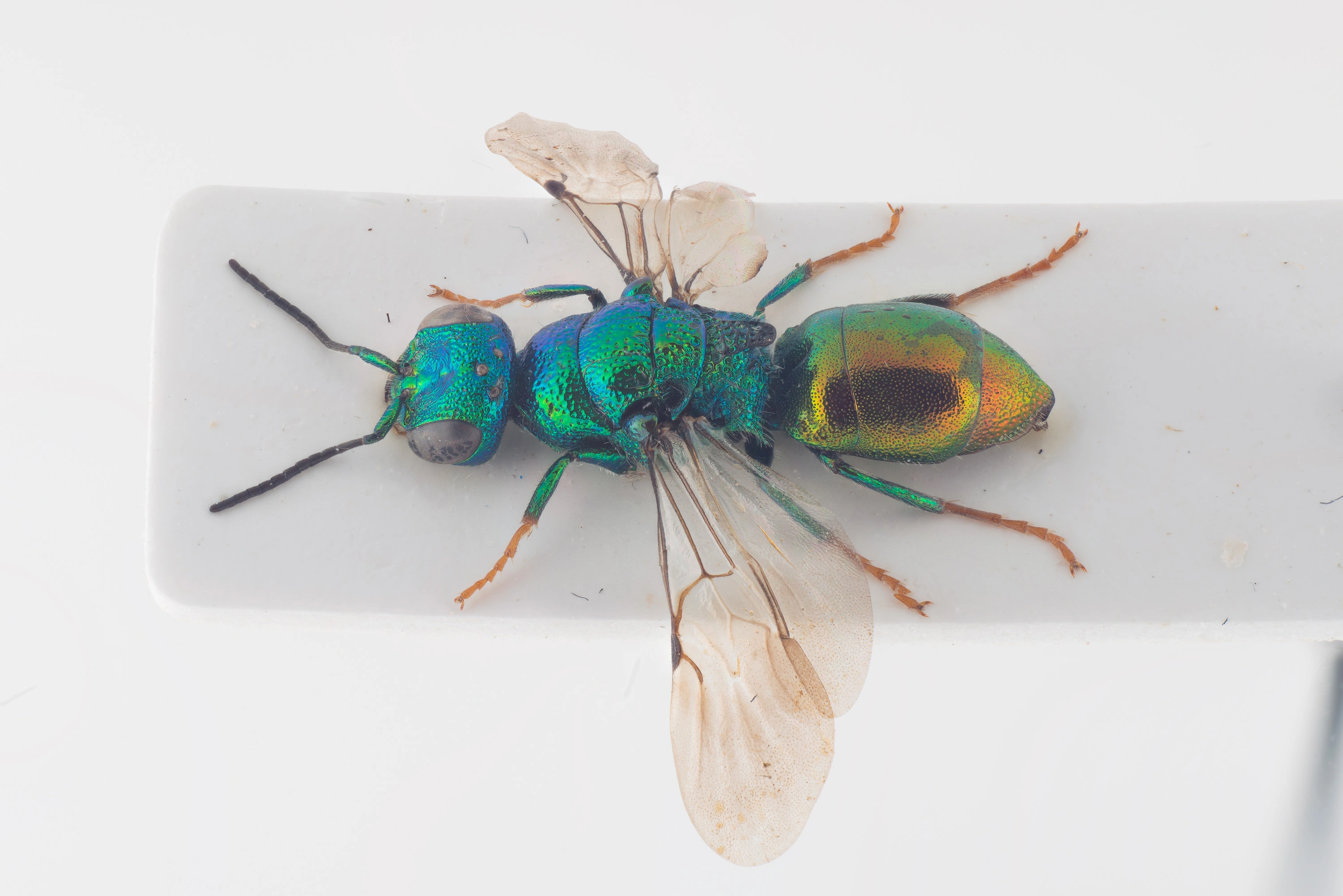Elampus panzeri
Figure 37
Elampus panzeri ♀. Scale 1 mm.
This is the most common species of the genus Elampus. It occurs in dry sandy areas. The hosts are Crabronidae of the genus Mimesa. The species is frequently visiting flowers. It can be separated from other closely related species by the horse-shoe shaped apical truncation of T3. The side margin of T3 has a deep narrow notch in front of the truncation.
- Innhold
- Diagnosis
- Distribution
- Biology
- Remarks
Diagnosis
Figure 39
T3, lateral view: E. panzeri ♀. Scale 0.5 mm.
Figure 41
Head, lateral view (arrow indicating genal setae): E. panzeri ♀. Scale 0.5 mm.
Figure 44
T3, postero-dorsal view: E. panzeri. Scale 0.5 mm.
Length 4–8 mm.
The species resembles E. constrictus and E. foveatus, but the apical truncation of T3 has angular margins ventrally and resembles a horseshoe in shape (Fig. 44). The lateral margins of T3 also have narrow notches in front of the apical truncation (Fig. 39). The punctation of T2 is somewhat sparser than in E. constrictus and E. foveatus. The scrobal carina is similar to E. foveatus (Fig. 43). Both sexes are bicoloured with a green or blue head and mesosoma, and a red metasoma with green reflections (Fig. 37). Rarely the metasoma can be entirely greenish.
Distribution
Denmark, Estonia, Finland, Latvia, Lithuania, Norway, Sweden. Common.
Trans-Palearctic: Europe, western Asia, Manchuria (Linsenmaier 1959, as E. constrictus).
Be aware that the records present in the GBIF map may be misleading for some countries due to unrevised data sets or missing information.
GBIF Taxon: Elampus panzeri (Fabricius, 1804)Biology
Habitat: sparsely vegetated sandy areas, heaths. Adults are occasionally found on flowers of Apiaceae (Heinrich 1964) and stems and inflorescences of grasses (Trautmann 1927, our own obs.).
Flight period: late May to August. Adults are also attracted to honeydew of aphids.
Host: Mimesa equestris (Fabricius) and M. lutaria (Fabricius) (Crabronidae) (Morice 1903, Benno 1950, our own obs.).
Remarks
The names Elampus constrictus and E. panzeri were erroneously swapped by Trautmann (1927) and later by Linsenmaier (1959, 1997) and other authors. See details from Móczár (1964).
